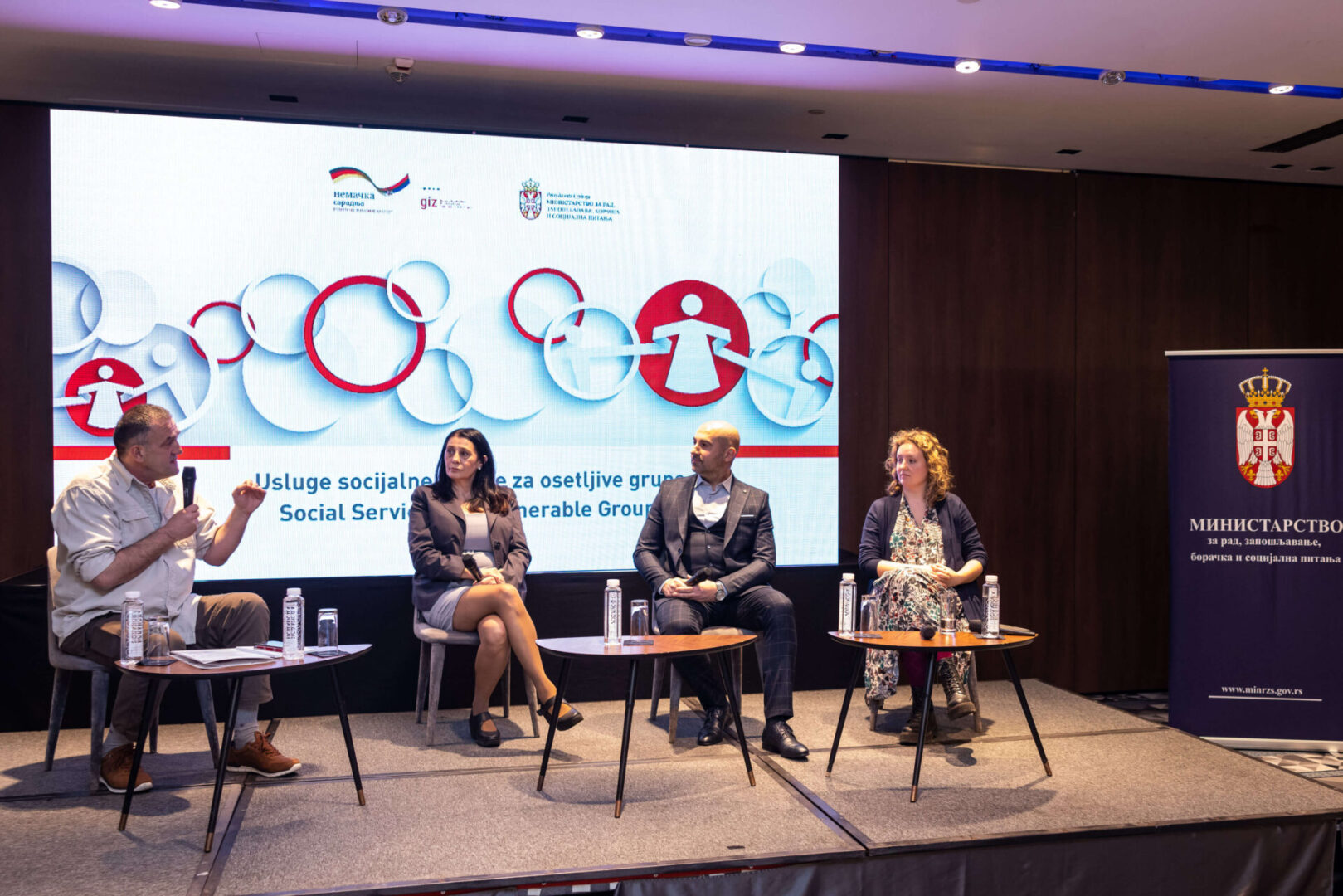Social protection services provide the best support when they are aligned with people’s needs. With the support of the German development cooperation project Social Protection Services for Vulnerable Groups, implemented by GIZ in cooperation with the Ministry of Labour, Employment, Veterans and Social Affairs, Serbia has recently worked intensively on developing and adopting a number of strategic and legal documents, and on strengthening its capacity to provide services that are necessary for inclusive social protection. At the project’s final conference it was concluded that major progress has been made in social policy reform.
“This program achieved two important goals”, said Nikola Selaković, Minister of Labour, Employment, Veterans and Social Affairs. “The first was to strengthen the normative legal framework in the field of social protection, and the second to contribute to the development of social protection institutions at the local level, those in direct contact with the public, whose job is to respond to people’s specific life demands and questions. This project has helped us, as today we have 297 licensed service providers in various sectors, public, private and civil, which is a huge increase considering that the number of licensed service providers in 2014 was only 24.” He added that social protection services are currently provided in 91 percent of municipalities in the Republic of Serbia.
Darija Kisić, Minister for Family Care and Demography, said that the Republic of Serbia has received substantial support from GIZ for drafting the Law on Gender Equality in 2021.
“Another modern, qualitative and high-quality legal act based on the highest international standards of human rights and equality of women and men has been adopted. GIZ has also provided support in the development of the gender equality impact test, which is an important instrument for introducing gender equality into the decision-making process. We will try to maintain and improve the present level of development in order to improve the position of the Republic of Serbia when the EU gender equality index is next calculated”, concluded Kisić.
Anke Konrad, German Ambassador to Serbia, mentioned that the inclusive approach of the governmental and non-governmental sectors, both at national and local levels, contributes to realizing the principle that no one should be left out.
“Germany’s support under this project has particularly contributed to the development of the Strategy for Deinstitutionalization. Behind this word lies a significant shift towards the provision of social welfare services in the community. We are supporting our Serbian partners to continue their reforms in social policy. Each step on this path is at the same time a step closer to a common European future”, Ambassador Konrad emphasized.
Brankica Janković, ombudswoman for the protection of equality, pointed out that the availability of social protection services largely depends on circumstances at the local level, which is why the establishment of inter-municipal cooperation through efficient and sustainable use of resources and partnerships between the various actors involved in providing support is extremely important.
Štefan Hajek, director of the Good Governance programme, pointed out that the project had received highest marks in an internal impact assessment, adding that summarizing the results can certainly help to understand what needs to be done in future under the new project Social Inclusion in Serbia.
“I would especially emphasize the excellent cooperation and great participation of all partners in the project”, said Hajek. “It is important to note that the project was assessed as flexible, that is, that we acted quickly and efficiently in crisis situations, and went through a truly challenging period. The assessment also noted that the project is relevant in terms of compliance with Serbia’s policy and needs in this area. What we must do in future relates, above all, to issues of sustainability. Many new, innovative services that have been established need to come to life and develop, and for that, financial support will certainly be needed”, said Hajek, concluding the final conference of the German development cooperation project Social Protection Services for Vulnerable Groups.










